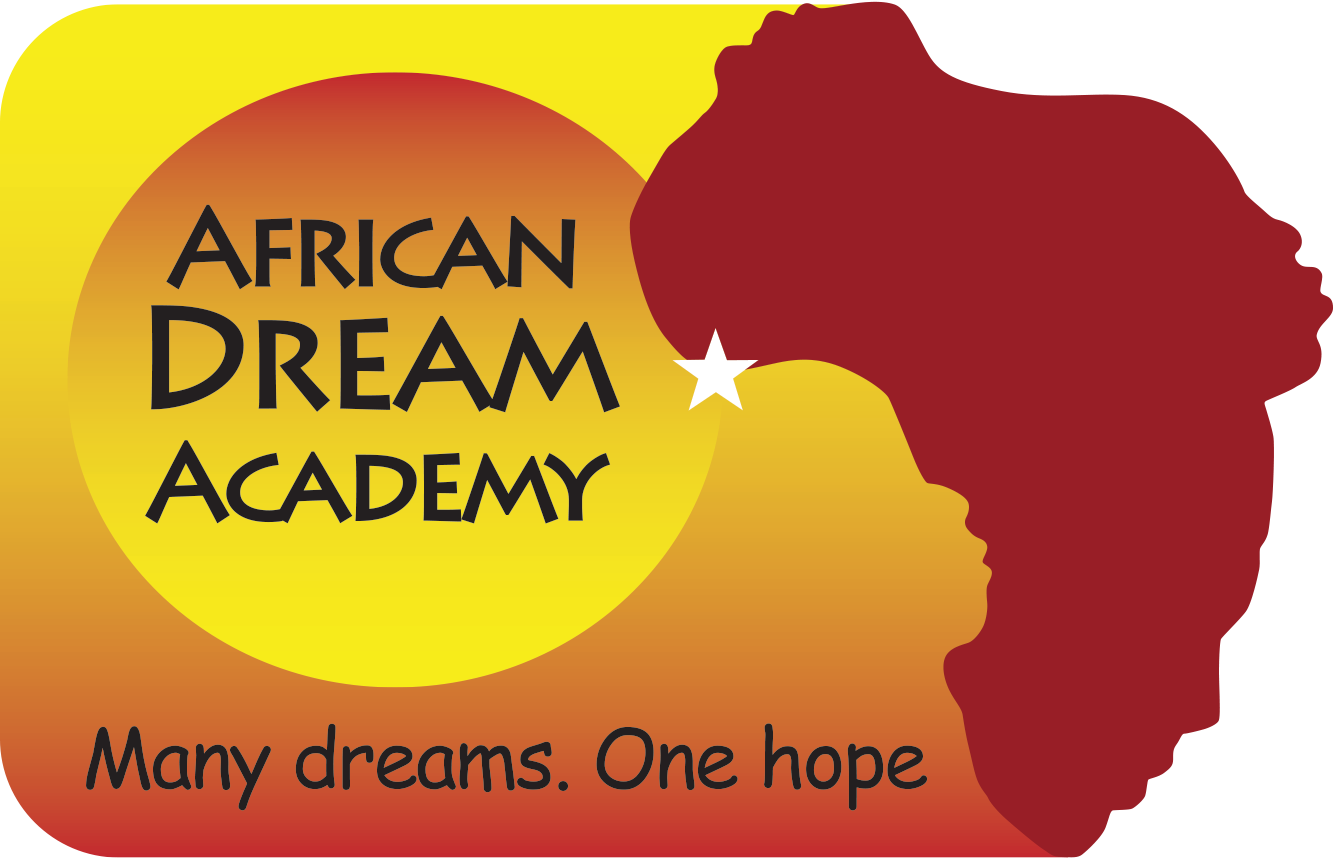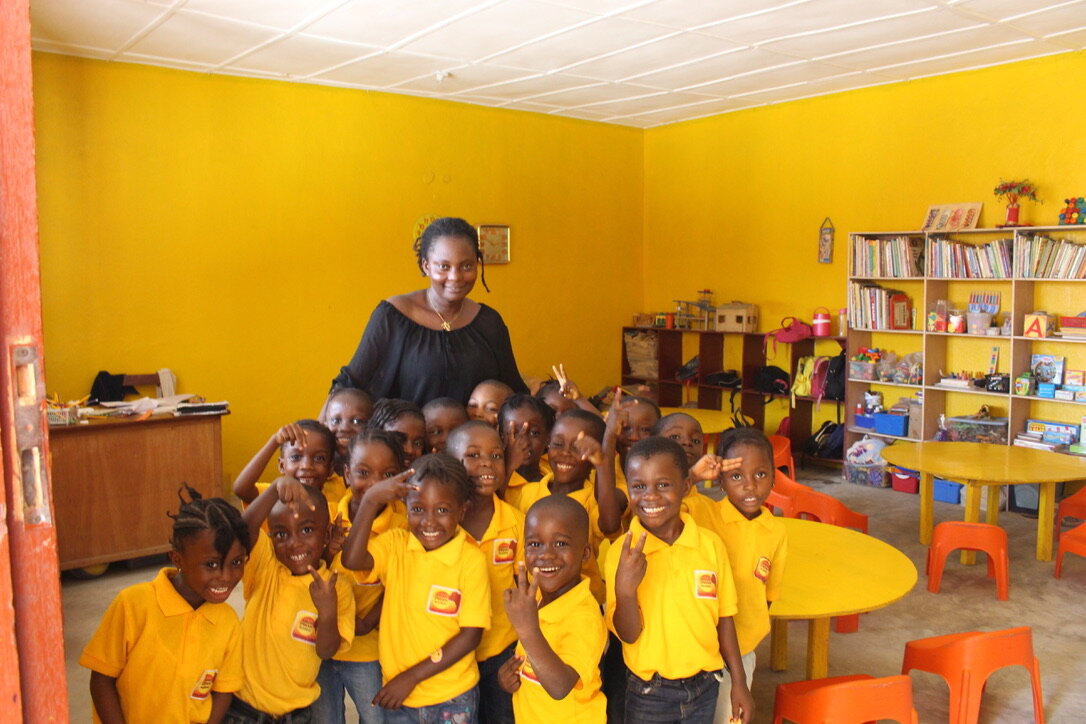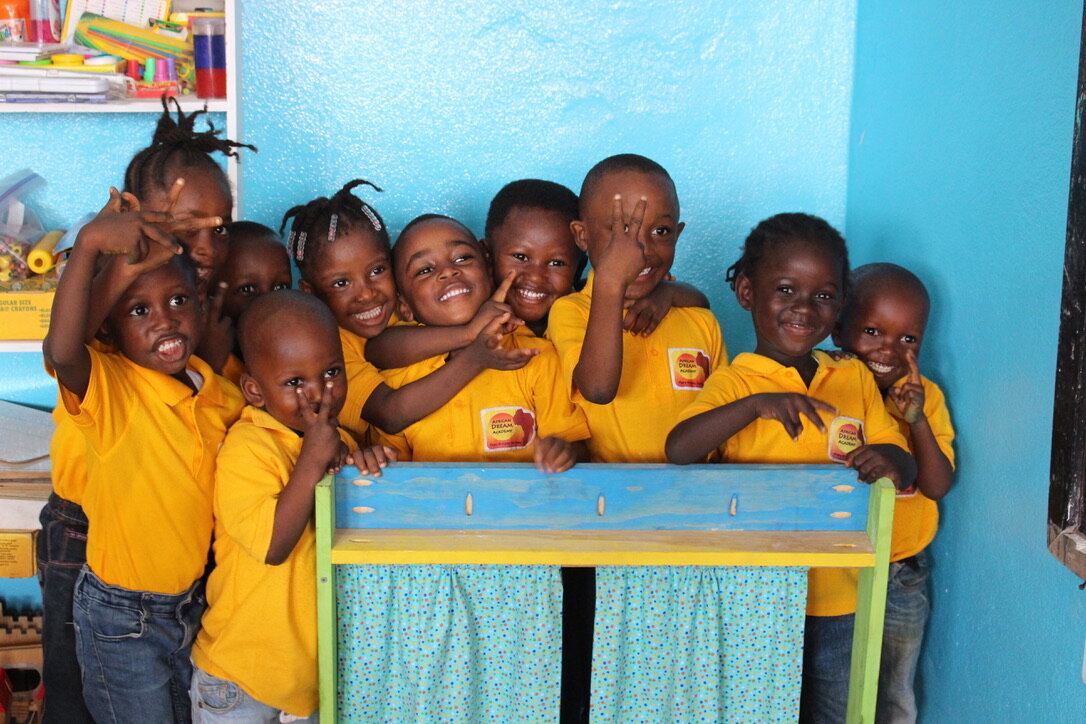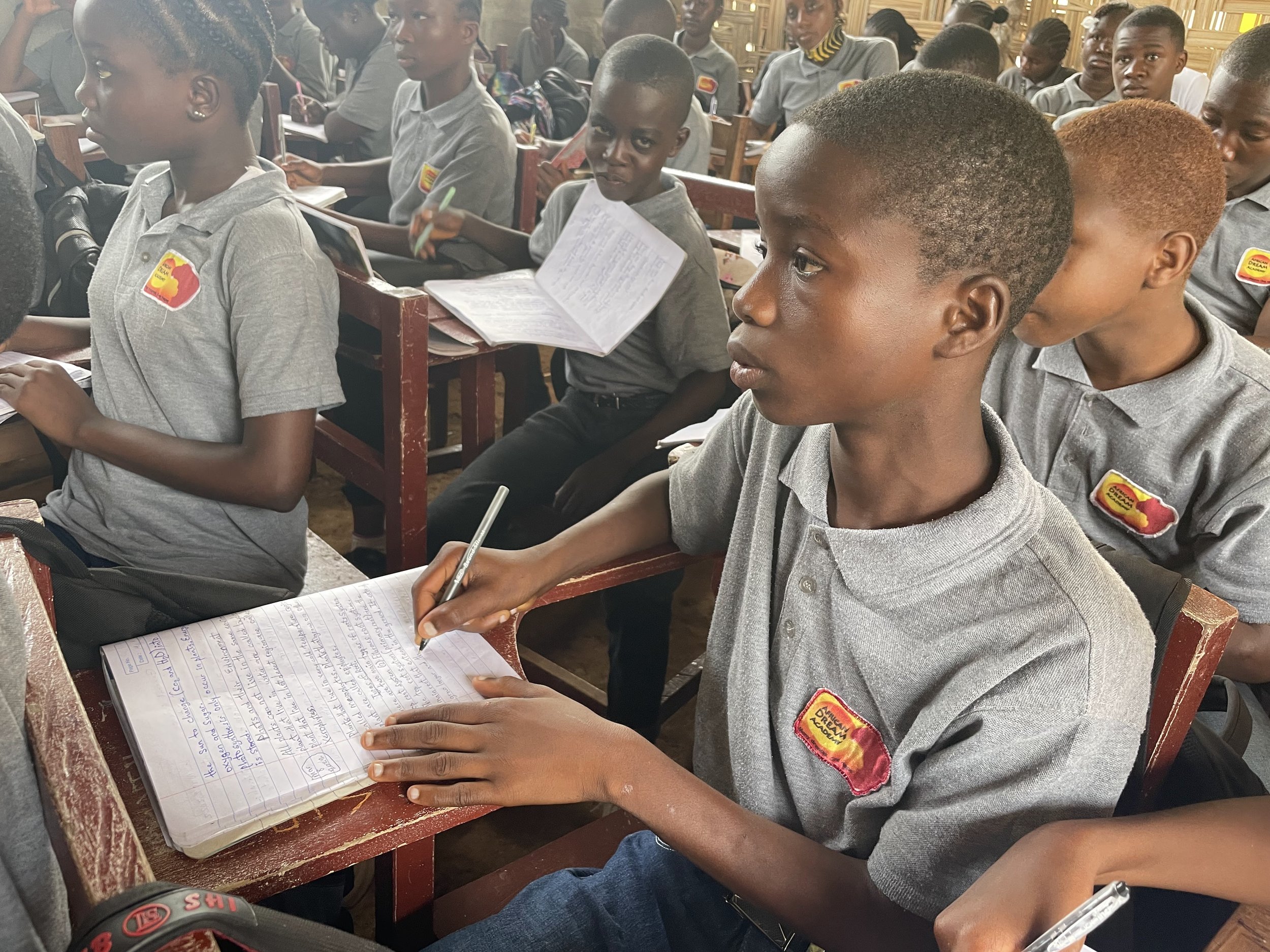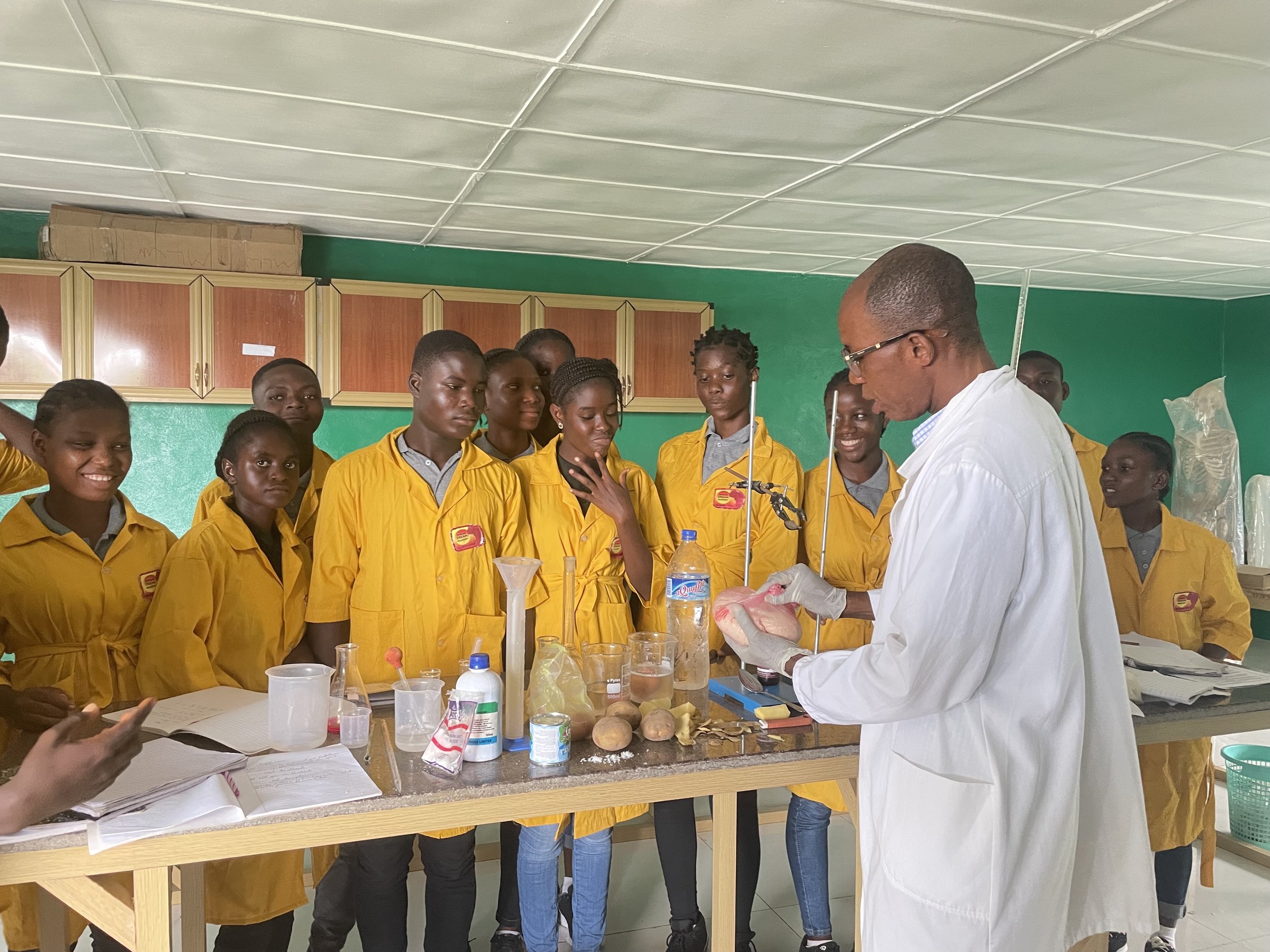About African Dream Academy
The African Dream Academy, Inc. is a not-for-profit Liberian corporation, which operates an early childhood, elementary, junior and senior high school at its two campuses in Paynesville, Monrovia, Liberia, West Africa. The school opened on September 10, 2012.
School Program
African Dream Academy currently educates children from age 3 in the Nursery Class through the Twelfth Grade of high school.
1) Early Childhood Division
The Early Childhood School begins with three year olds, as recent studies have shown that a fine education in the early childhood years has the greatest impact, as this is the stage when the brain is developing most rapidly, creating periodic "blooms" of synapses (connections among neurons) that present "windows of opportunity" for brain development; by age six, the brain is about 95% of the size of an adult brain. (Hawley,T. "Starting Smart: How Early Experiences Affect Brain Development" 2nd Edition, 2000)
James Heckman, a Nobel Prize-winning economist, has shown that investing in early-childhood education can lead to significant economic gains for society - an average of 10 percent per year through increased personal achievement and social productivity (Heckman and Masterov, The Productivity Argument for Investing in Young Children, October 2004).
The Early Childhood Division consists of Nursery classes of three-year-olds, Pre-Kindergarten classes of four-year-olds called K-1, and Kindergarten classes of five-year-olds called K-2. Each class has no more than 30 children with a Head teacher and an Assistant teacher.
The early childhood program aims to facilitate cognitive, social, emotional and physical development through a wide variety of learning experiences. Class time is balanced to include teacher-initiated activities designed to assist with specific skill development and child-initiated exploration of materials and centers designed to stimulate, engage, and foster excitement and enthusiasm for learning. Children have both whole group and small group experiences with an emphasis on successful participation as a classroom community member. A wide variety of construction materials, puzzles, learning materials and books have been sent from the United States. The Zoo-phonics Multi-sensory Language Arts Program is used to develop literacy. It is a kinesthetic, multi-modal approach to learning all aspects of language arts, including vocabulary development and articulation, based on phonics and phonemic awareness.
The principle of Zoo-phonics maximizes understanding, memory, utilization and transference to all areas of the reading, spelling and writing process in a playful and concrete manner.
2) Elementary Division
ADA follows the national curriculum prescribed by the Liberian Ministry of Education. Materials and textbooks are selected from a wide range of nationally and internationally recognized companies and programs such as Harcourt, Pearson and Scholastic to help the students develop their fullest potential in preparation for meeting all the challenges of the elementary school. This combined curriculum teaches skills that apply to real-world settings employing the collective wisdom of our cultures and upholding the values of disciplinary learning. It also develops our students’ ability to reason, be creative and use critical thinking skills and collaborative learning.
Classes are divided into sections to keep class size under 30 children. These grades begin daily activities with a morning assembly focusing on character education. The day proceeds with instruction in the core subjects: language arts, mathematics, science and social studies, and students participate in additional special classes, such as computer, French, music, library, physical education, cultural dance, and art. Saturday classes are also held for Sixth Grade students to prepare them for the West African Council Exam.
Lower-Elementary Division (Grades 1st - 3rd)
In 1st and 2nd Grades, students are taught core subjects in self-contained classes by a teacher and assistant teacher who work as a team. In 3rd Grade two teachers rotate between classes teaching students core subjects preparing them for middle grade instruction.
Upper Elementary Division (Grades 4th - 6th)
The upper elementary division consists of rotational classes in core subjects for 4th through 6th Grades and in special classes mentioned above.
3) Junior High Division (Grades 7-9)
Junior High students are taught in rotational classes by over 15 specialized teachers in the following core subjects: English, literature, vocabulary, civics, geography, history, science, and math. Students also participate in the special classes listed under the Elementary Division, but at an advanced level, and Saturday classes are held to prepare them for the West African Council Exam.
4) High School Division (Grades 10-12)
The High School Division currently consists of Tenth, Eleventh, and Twelfth Grades. Core subjects become more rigorous as students now study: English, literature, vocabulary, civics, geography, history, biology, chemistry, physics, and math; and in addition to advanced-level classes in the special subjects, high school students are offered classes in counseling and labs.
As we educate future leaders of Liberia, the faculty is mindful of providing opportunities for students to celebrate growth in independence as they move from skill acquisition to application of everything they have learned.
CHILDREN’S HEALTH AT ADA
All students at ADA have access to free health care through a partnership with Haven Care, Inc., a clinic located approximately 10 minutes from the School and which ADA has worked closely with since April 2016. In addition, all students receive daily snacks and a hot, nutritious midday meal while they are in school.
THE VOCATIONAL SCHOOL
A vocational school was created for mothers of ADA students in 2017 to teach them skills, which they could use to better support their families, and over the past three years, the Vocational School has trained over 1,500 women. In 2020, fathers of ADA students were added to the program, giving them skills, as well, to increase the support of their families. ADA parents can choose between classes in computer skills, catering, beauty care, tailoring, soap-making, hair dressing, interior design, air-conditioning, refrigeration, carpentry, electricity, plumbing, masonry, and driving. Currently there are approximately 500 women and 60 men enrolled in these classes, which are held at the end of the children’s school day and on Saturdays.
